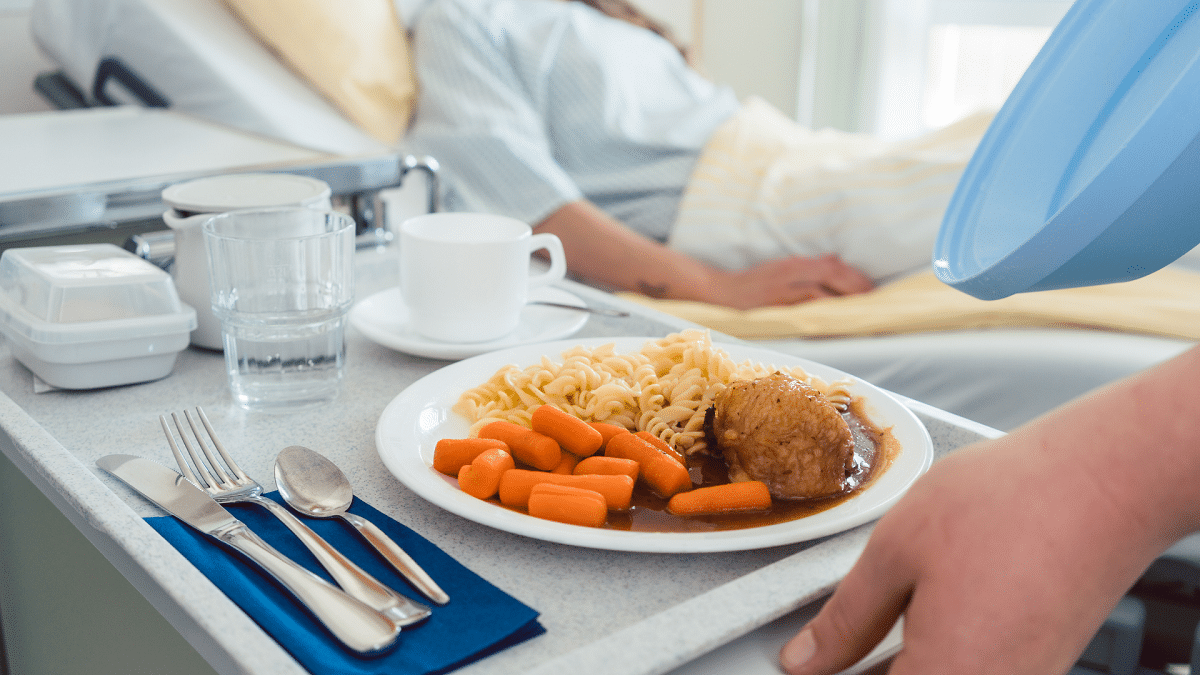We’ve all had times when we’ve been unwell and not felt like eating or when we have reached for unhealthy food when we are busy, tired or stressed. But a nutritious meal can profoundly impact our mental and physical health and our ability to recover from illness. Healthy food is even more vital for hospital stays, where quick and stable recovery can benefit patients, the NHS and carers. However, hospital food doesn’t have the best images these days. We’d like to see improvements in the nutritional profile, procurement sustainability and overall deliciousness of what our hospitals can offer. However, our city is in luck with Sheffield Teaching Hospitals NHS Foundation Trust, which is leading the way nationally when it comes to fresh food and UK-sourced ingredients.
The Connection between Food, Health & Obesity
Food and health are naturally linked. Poor food options lead to obesity, illnesses and chronic conditions that are seriously detrimental to people’s quality of life. Whereas more healthy alternatives can reduce disease risk and improve fitness and happiness.
Almost 30% of the UK’s adult population is obese. In Sheffield, the stats are marginally better, where 23.7% of adults are obese. Obesity significantly increases the risk of developing chronic illnesses such as diabetes, heart disease and depression. Eating certain foods also increases your risk of cancer. For example, there is a strong link between processed meats and bowel cancer, and alcohol consumption has a solid correlation to 7 different cancers, including breast, bowel and mouth.
While improving our diets at home is critical to reducing our risk of long-term illness, a healthy recovery is just as vital should the worst happen. Those who find themselves in hospitals receive fantastic medical care, but across the UK should also have some delicious and nutritious meals to aid their recovery and set them on the right track for when they get home.
How Local Food Linking Hospitals Could Help
So, why do hospitals have a poor reputation for good quality food? The leading cause often stated is cost. Most hospitals in the UK use catering companies to procure food and heat it up rather than cook it on-premise. Hospitals could take a leaf out of schools’ books, many of which are now switching to local food procurement to save money and cooking on-site. At one primary school in Newham in London, they managed to save £10,000 by switching from milk cartons to bottles provided by a local dairy wholesaler.
Hyper-local food production also focuses on healthier food options such as livestock and seasonal, fresh produce. The NHS’s More Sustainable Procurement said, “Foods in season contain the nutrients, minerals and trace elements that our bodies need at particular times of the year.” Therefore hospitals should adopt a minimum spend on local, seasonal products that support the health and well-being of their patients.
The Barriers and The Benefits
However, it’s not as simple as switching over instantly to local food for all hospital meals. So many barriers are stopping this, but we can make it happen with local and national government support.
The first and most vital problem is that there isn’t enough local food in Sheffield for the people in the city. Sheffield has no long horticultural history and needs heavy investment in urban and peri-urban farming. Access to land, training and education in the sector and market access must be considered to make local food accessible to all, including our hospitals. Secondly, investment in hospital kitchens, as seen in Sheffield Teaching Hospitals, to allow on-site catering will enable better-quality patient meals that are more nutritional.
While this seems like a vast amount of work, the benefits are extensive. Investing in our farming and catering sector will produce countless jobs, boosting the economy for local people. In addition, local procurement has a powerful economic multiplier; for example, two case studies in Nottingham and Plymouth demonstrated that for each £1 spent locally, there was a local re-spending of £1.19 and £0.85, respectively. There are also many environmental benefits to local, sustainable procurement; fewer transportation miles, increased bio-diversity, reduced use of pesticides and fertilisers and more.
Luckily for the people of Sheffield, our hospitals are leading the way nationally with these types of initiatives. Sheffield’s Teaching Hospitals has committed to cooking all inpatient meals from scratch and using as many UK-based suppliers as possible. Cooking on-site means they’ve been able to improve the nutritional quality of the food and offer a wider variety of options for different medical needs, such as texture-modified meals. Of course, our leading hospitals, Northern General and Royal Hallamshire, would love to use local food, but the quantity required is not currently available. If we could help make this a priority, their chefs could provide even better seasonal and healthy meals which support patients getting back on their feet quicker, reducing waiting times and improving the long-term health of our city. So it’s time to put local food on the menu and the health of Sheffielder’s first!

